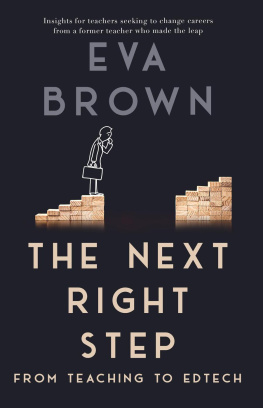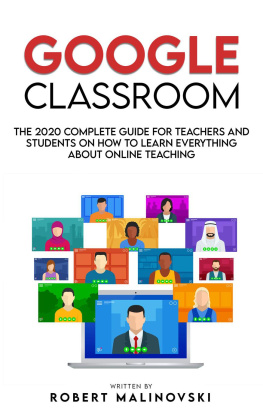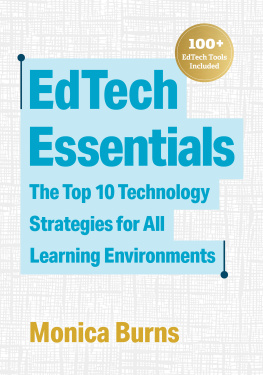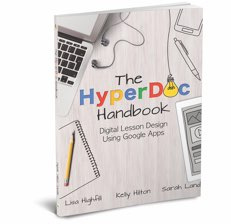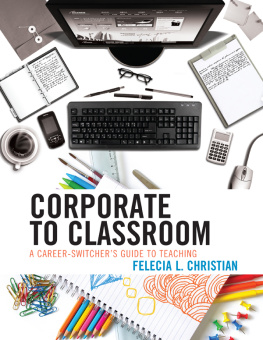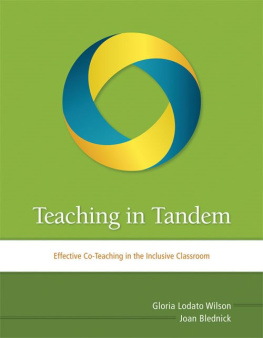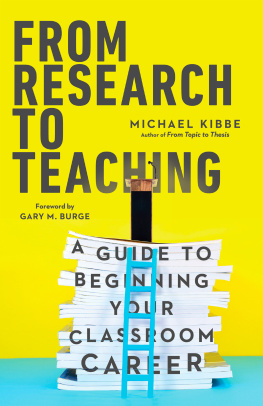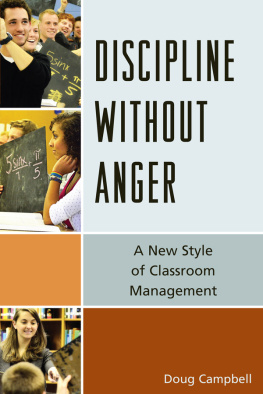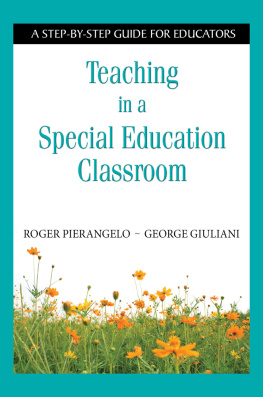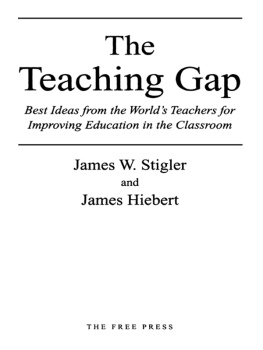The Next Right Step: From Teaching to EdTech
Eva Brown
Published by Eva Brown, 2021.
All rights reserved. No part of this publication may be reproduced, stored or transmitted in any form or by any means, electronic, mechanical, photocopying, recording, scanning, or otherwise without written permission from the publisher. It is illegal to copy this book, post it to a website, or distribute it by any other means without permission.
Eva Brown has no responsibility for the persistence or accuracy of URLs for external or third-party Internet Websites referred to in this publication and does not guarantee that any content on such Websites is, or will remain, accurate or appropriate.
Designations used by companies to distinguish their products are often claimed as trademarks. All brand names and product names used in this book are trade names, service marks, trademarks and registered trademarks of their respective owners. The author and publisher are not associated with any product or vendor mentioned in this book. No company, product or vendor mentioned has partnered with the author, nor have they sponsored or endorsed the book, unless otherwise stated.
Copyright 2021 Eva Brown
All rights reserved.
ISBN: 9781393989776
To all teachers, who help children take the next step in learning every single day.
And to Jeff, for always being beside me as we take the next right step together.
Thank you to the many teachers who reached out to me to ask about EdTech.
You sparked this idea.
Thank you to the current and former colleagues who so graciously gave of their time to provide feedback and support.
Thank you to my husband, Jeff, and to Shefali Parekh, for being such fantastic editors. Any mistakes still found in this book must have been added after you reviewed the text!
But mostly, thank you to my family. I could not have done this without your sacrifices as you gave up many Saturday mornings and weekday evenings with me as I worked on this project. Thank you for believing in me.
I love you!
How Did You Get into EdTech, Anyway?
I N FEBRUARY 2021, MY InMail message notification chimed. Hi Eva, I saw you were an Implementation Coordinator and would love to learn how you got started in your field and connect sometime. The writer was a teacher, someone I had never met before, who just happened to come across a post that I had shared about my new position. She continued, As a current teacher, what skills would you say would make me a successful candidate to get hired for a company like [yours] if you dont mind me asking? Recently I had been asked the same question by some friends who were still in the classroom, so I set up an online session to answer their questions live.
The session was so lively and rich with questions that I decided to offer another one. I enjoy speaking with people and sharing my story, and the teachers were eager for knowledge. After having to pivot so many times during the past year, from creating take-home assignments to teaching virtually to returning to the classroom with masks, they seemed even more interested in answering the question of how else they might be able to use their skills and experience to impact students and education. I arranged for another session, limiting the capacity to 10 people to allow for conversation. I posted an open invitation, and within minutes, that session was full.
From there, the idea of this book was born. As questions continued to pour into my inbox from people I had never met before, I realized how hungry teachers were to learn how to take the next step into the business world when all their experience was in a classroom. The questions were always the same. How did I make the leap? What positions should they consider? How should they prepare for different positions? What are the salaries like? What are the pros and cons? There was often a tone of discouragement, with teachers sharing that they had been looking for months with no luck. There were so many requests to connect that I couldnt possibly keep up with them all, but I read all the messages and mapped out the contents of this book so that I could share some answers not only with those who had already reached out but also those who were starting to wonder about possibilities beyond the classroom.
The thing is, I never planned to leave the classroom. From as far back as I can remember, my favorite game to play was school. During the warm, upstate New York summers, when the neighbors were available and willing, we would set up a classroom of sorts on one of our front porches. Whoever had prepared the most worksheets got to be the teacher, and it was almost always me. Initially we would copy each worksheet several times by hand, until I discovered carbon copy paper, which was a game-changer. I would make math sheets, reading passages, and science activities asking my students to determine which leaf matched which tree. I established classroom rules (1. Be on time; 2. Raise your hand to talk; 3. Dont rub burdock in anyones hair). And I planned field trips to my favorite tree in the woods or gathering the smoothest rocks from the creek by their house to categorize as sedimentary, igneous, or metamorphic.
As summer turned to cool fall and everyone went back to real school, I turned my teaching attention to my Fisher-Price people, setting up the plastic one-room schoolhouse on my floor and arranging the plastic desk chairs into different configurations to see how I could best meet the needs of all my one-inch-tall students. I would beg my father, an actual science teacher, to let me grade his students tests until the advent of Scantron (which I secretly hated since it removed the necessity for my help.) I begged my own teachers to let me teach whenever I could, working out ways to explain two-digit by two-digit multiplication or the best strategies for learning to read.
I was born to teach.
As a college student, I majored in elementary education because my other interests were so varied that I couldnt choose just one subject to focus on as a secondary education teacher. I didnt want to teach just English or history or mathI wanted to teach all the subjects. I did my internships in primary classes in both the United States and England and loved every minute of it. I read every book I could find and watched every movie that was released that focused on teachers who changed students lives. My heroes were principal Joe Louis Clark, Laura Ingalls Wilder (for teaching so many different students in one classroom), Anne Sullivan, and Howard Gardner (who so perfectly captured what teachers already know that every student is gifted in some way, and that school only measures some areas of gifting and intelligence.) And of course, the teacher who had changed my life Mr. Ed Sharpe, my 8th grade health teacher, who helped me step out of anxiety and the fear of being bullied and step into a world of possibility, teaching me something that would never be measured on any state test.

